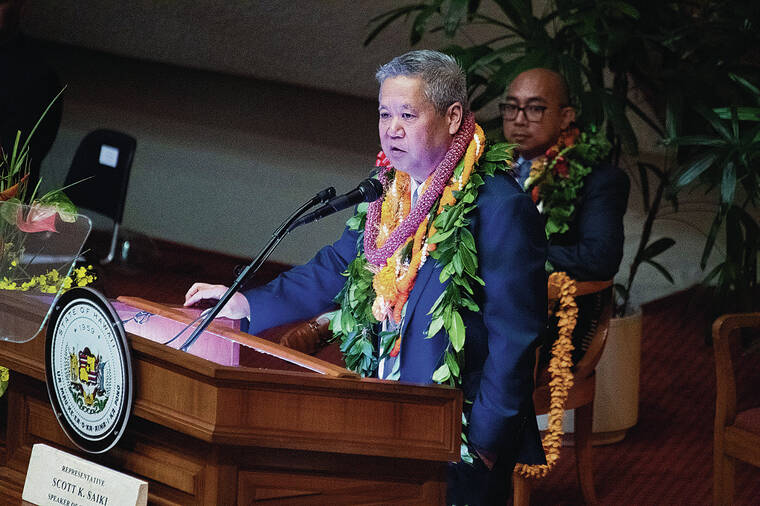By: David Shapiro
The Office of Hawaiian Affairs has made many costly misjudgments in decades of attempts to settle its ceded-lands dispute with the state, and trustees may have made another by too hastily rejecting a new proposal from House Speaker Scott Saiki.
The speaker offered OHA $100 million in cash, $65 million in improvements to its Fisherman’s Wharf property and a boost to $25 million from $21.5 million in annual state allotments — with inflation escalators — in exchange for dropping futile plans for high-rise residential development of its Kakaako Makai properties.
Assuming Saiki could have gotten the Senate and Gov. Josh Green to agree, it would have nearly doubled the $200 million value of a 2012 sucker’s deal in which OHA took the 31 Kakaako acres as full settlement of a dispute with the state over its share of ceded lands, without securing a guarantee the land could be fully developed.
After this year’s fourth failed attempt to get the Legislature to lift a 2006 ban on the dense development OHA plans in Kakaako Makai — a nod to citizens groups wanting to keep the area in open space — it’s time for the agency to recognize this path is a dead horse and seek other avenues to build equity for its beneficiaries.
OHA is funded by a share of revenues from ceded lands — former Hawaiian crown lands now owned by the state — but the two sides differed on an appropriate amount.
A judge ruled in 1996 that the state owed OHA $1.2 billion, and then-Gov. Ben Cayetano offered a compromise of lands around the state worth hundreds of millions while the case was on appeal before the state Supreme Court.
But OHA rejected Cayetano despite clear signals from former Chief Justice Ronald Moon it should settle. When the Supreme Court overturned the $1.2 billion award, OHA was left to accept a $187 million settlement from the Lingle administration involving lands in Hilo, Kewalo and Kalaeloa, later rejected by the Legislature in a political dispute.
The Abercrombie administration offered OHA the Kakaako parcels after public environmental outcry forced the Legislature — led by Saiki, the district representative — to tightly restrict development of Kakaako Makai. OHA was persuaded it could reverse the restrictions by arguing Hawaiians should be able to do as they wish with their lands.
OHA took the deal despite continued strong community opposition to dense development makai of Ala Moana Boulevard and repeated assertions from the powerful Saiki that he remained a hard “no.” If OHA was “shortchanged,” as it now claims, it was in good part its own poor judgment.
Saiki’s new deal would leave OHA with better infrastructure at Kakaako and plenty of less dense revenue-producing development it could still do there, as well as substantial cash it could invest elsewhere to produce income for its beneficiaries.
It would also give the agency a fresh start to address recent concerns from the state auditor that its real estate management has been “ad hoc” and “risky.”
Let’s hope its refusal of Saiki’s offer is the start of negotiations and not stubborn clinging to a failed strategy.

CRAIG T. KOJIMA / JAN. 18
